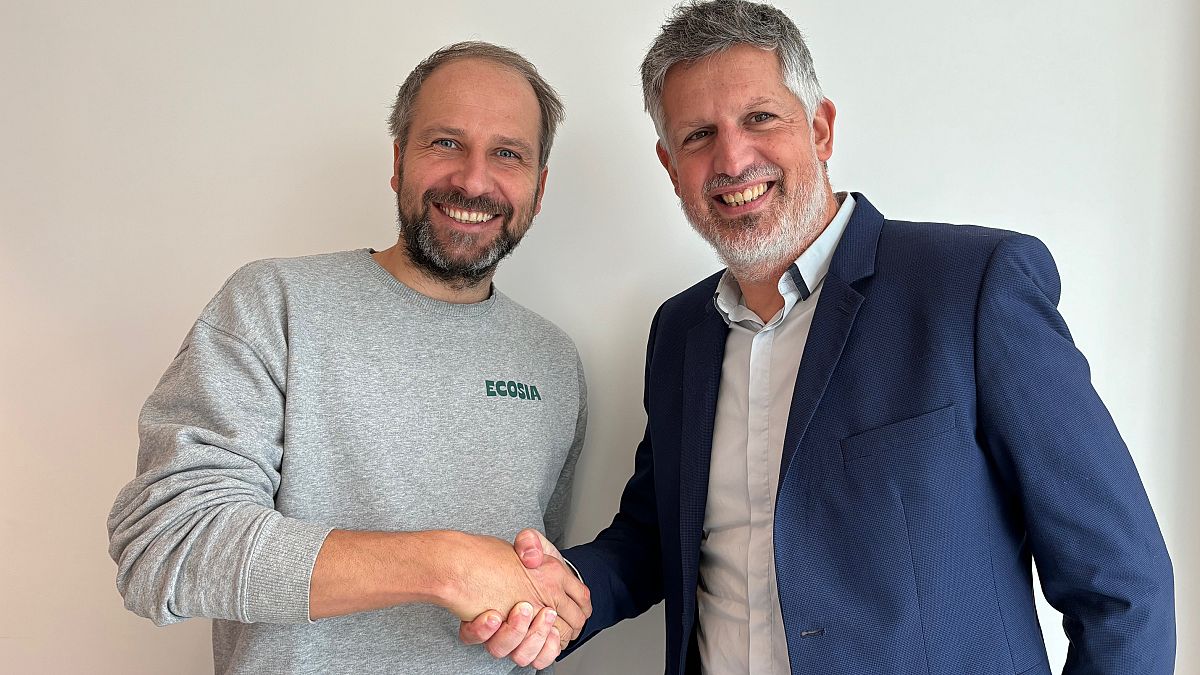“If the United States decided to pull US technology from Europe… then we would have to go back to phone books,” said Ecosia’s CEO.
Two European search engine companies announced on Tuesday that they are building infrastructure in Europe to give Internet users a European search alternative.
The companies say the effort is even more important now given the recent election of Donald Trump in the United States.
The infrastructure, called European Search Perspectives (EUSP), is based in Paris and is the creation of the German company Ecosia and French firm Qwant.
It will be operational in 2025 and available in both German and French.
Ecosia and Qwant have historically relied on Microsoft’s Bing platform, with Ecosia also relying on Google.
The aim is to build European digital sovereignty and use the platform to provide a foundation for artificial intelligence (AI) infrastructure.
“I think for European society, especially considering the US election results, the current state of the technology in that area is that if the United States decided to pull US technology from Europe [and] not give us access anymore, then we would have to go back to phonebooks,” Christian Kroll, Ecosia’s CEO, told Euronews Next.
“Also with AI technologies emerging, a search index is the foundation for that, a very important building block and it’s important that we have something like this as well,” he added.
EUSP will develop a privacy-first search index, which is essentially a database of information from various web pages.
Both Ecosia and Qwant will use the infrastructure and it will be available for other independent search engines and technology companies.
Is this Europe’s answer to Google?
“We will not be the European Google as sometimes people want us to be because it’s not possible,” Olivier Abecassis, CEO of Qwant, told Euronews Next.
He said it is not a matter of matching and duplicating what Google does but also using their technology to develop their own.
“We believe that doing it in 2024 based on AI capacity and the capacity to get datasets from Google and Microsoft, thanks to the DMA (Digital Markets Act) and the opportunity to access the other data is an opportunity,” he added.
Thanks to the DMA, companies like Google and Microsoft have had to open their datasets and make them accessible for other companies.
The companies said they hope that regulation can help to solve some data challenges for search engines, such as having access to more information. For example, if a restaurant posts its opening hours only on Google Maps, only Google will have access to that information.
The companies also said one difference between the US and Europe is that the US government would likely help with the financing because it is geopolitically important. However, this is not the case in Europe.
The EUSP’s revenue model will be able to raise investor capital outside of Ecosia’s steward-owned model.
While some have called the EUSP a European answer to Google, the CEOs are much more humble in their description of it.
“We definitely will not provide a set of tools that is as big as Google. But we strongly believe that on the search side, and especially with the opportunity of AI, we can provide a technology that can be strong enough,” Abecassis said.

